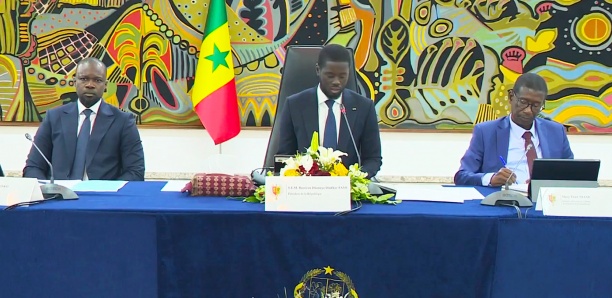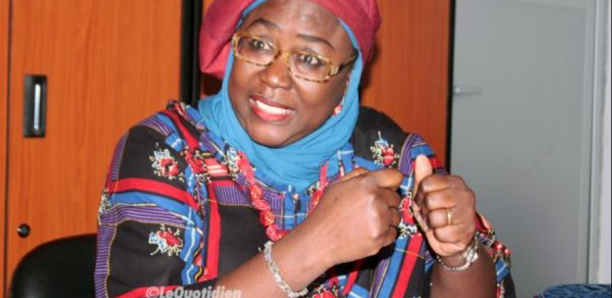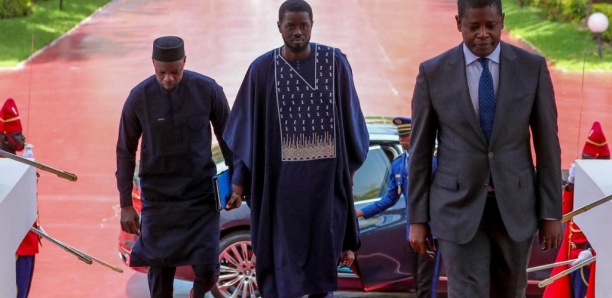
Les populations d’Abéné, un village situé à trois kilomètres de la station balnéaire de Kaffountine, dans le département de Bignona (sud) ont dit samedi leur adhésion à l’installation d’une usine de fabrique de farine de poisson financée à hauteur de six milliards de francs CFA pour un promoteur chinois, a constaté l’APS.
Réunies sous un immense arbre faisant office de place publique à Abéné, les populations, toutes communautés confondues (diolas, mandingues, karoninkés, etc.) ont exprimé leur adhésion à ce projet, ’’une aubaine’’ pour leur village.
"Toutes les communautés du village se sont réunies pour donner leur accord à ce projet qui est une aubaine pour le village compte tenu des nombreux avantages que nous proposent les Chinois", a expliqué Lamine Diabang, porte-parole des populations.
Selon lui, ce projet "présente de réelles opportunités pour le village" d’Abéné, compte tenu notamment des "possibilités de création d’emplois pour les jeunes’’ par exemple, sans compter les projets de "construction d’une mosquée et d’une église et plusieurs autres’’ initiatives socio-économiques prévues par les promoteurs.
De l’avis de Souleymane Koté, l’un des responsables des jeunes, cette unité industrielle en cours d’implantation à Abéné "va ouvrir d’autres perspectives pour mieux lutter contre le chômage endémique et l’émigration clandestine".
"Beaucoup de fils d’Abéné sont restés dans la mer’’ en tentant de gagner l’Europe. "Ce projet va prendre en compte cette préoccupation liée à l’émigration clandestine sans compter d’autres opportunités", a-t-il soutenu.
"Rien que pour les travaux d’installation de l’usine, une centaine de jeunes sont employés par les Chinois", a souligné ce représentant des jeunes d’Abéné.
"Nous demandons au gouvernement de faire attention et de suivre la volonté des populations d’Abéné. Cette volonté est de voir cette usine de fabrique de farine de poisson et d’huile de poisson réalisée dans notre village", a ajouté Augustin Diankène Diatta, l’un des notables du village.
Des hôteliers installés sur un site dédié au tourisme à Abéné, à quelques encablures de la station balnéaire de Kaffountine, ont récemment dénoncé l’installation de cette unité industrielle qui selon eux "risque de nuire à l’activité touristique de la localité".
"Au contraire, cela peut redonner un coup d’élan au tourisme. En installant cette usine, le développement économique de la localité pourrait être accéléré. Notre ancien aéroport pourrait même être réhabilité", a argué Augustin Diankène Diatta.
"Rien qu’à voir cette mobilisation’’, l’on est renseigné sur le fait de savoir "si les populations ont adhéré à ce projet" ou non, fait valoir une porte-parole des femmes.
Ces dernières "sont fatiguées par les petits boulots qui ne nous rapportent rie. Le promoteur nous a proposé des projets dans les domaines de l’agriculture et de la santé", a déclaré au nom de la gent féminine d’Abéné.
A la suite de leur rassemblement sur la place publique du village, les populations ont improvisé une marche de soutien à l’installation de cette unité industrielle, laquelle les a conduites jusqu’périmètre dédié à cette usine.
"Nous sommes fiers de voir les populations nous soutenir. Nous avons respecté toutes les procédures légales en matière d’installation d’une unité industrielle en vigueur au Sénégal. Il s’agit d’un projet de plus de six milliards de francs CFA. Il emploiera plusieurs jeunes et femmes du village", a réagi Sissi Xie, l’une des responsables du chantier.






























23 Commentaires
Judge 1000 Years
En Février, 2018 (16:55 PM)Le tourisme et tous les emplois lies a cette activite vont disparaitre. Et le plus grands soucis c´est l´impacte sur l ´environnement.
La verite est que il y a beaucoup de gens a abene, surtout la jeunesse qui n´est pas d´accord pour l´implentation de ce projet. Mais quelques persones tentent de faire du forcing en manipulant et en desinformant .
Dou
En Février, 2018 (18:12 PM)D'où vient le poisson? Combien de tonnes seront prélevées dans les eaux côtières? Où va la farine de poisson? Que mangeront les gens à Abène et ses environs? Quel touriste va bronzer sur la plage à côté des déchets de poisson puants?. . .
Pourquoi APS diffuse-t-il cette propagande pour ce bidonnage chinois?
Anonyme
En Février, 2018 (18:39 PM)Moustapha Ndiaye
En Février, 2018 (19:11 PM)L'idée serait géniale, non pas pour seulement les populations de la zone , mais aussi serait un apport capital pour l'economie de toute la basse casamance, si, un tel projet ´était combine a l'installation d'un volet +energie dans le but d'alimenter les populations limitrophes en électricité; D'autre part , l'usine remplirait integralement son rôle d'outil de développement , si elle était doublée d'une unité de congellation et de conservation des produits halieutiques..
M. M. ND
Anonyme
En Février, 2018 (20:33 PM)Anonyme
En Février, 2018 (21:28 PM)LES POPULATIONS DE BOUNTOU NDIOUR ET MBAMBARA PRES DE SAINT-LOUIS LE SAVENT.
IMAGINEZ DES TRIPPES DE POISONS POURIS BOUILLIS DANS DES MARMITES ENORMES C EST CELA UNE USINE DE FARINE DE POISSONS.
FAITES GAFE LES CHINOIS N ONT JAMAIS TENUS LEURS PROMESSES SUR LE PLAN DE L EMPLOIS
Anonyme
En Février, 2018 (22:18 PM)A severe national security threat is unfolding in Gunjur, the hometown of the Majority Leader Kebba K Barrow. There is a Chinese company engaged in fish meal production, which dumps its waste and dead fish along the coastline and neighboring communities. The factory releases intense bad odour making people sick as well as destroying our fish reserves and polluting the waters. This is a direct threat to the lives and livelihoods of the people of Gunjur, Kombo and the Gambia as a whole. Yet this company called Golden Leaf Factory continues to operate unchecked by the Government since last year until today, four months into the administration of Adama Barrow. Why?
Two Chinese, Robin and Jojo run the factory without any Gambian partners and under no check by any authority. They produce fishmeal or fish oil, which is made out of fish and used to feed poultry, pigs and other farmed fish. According to FAO fishmeal production is a major contributor to over-fishing and prevents fish from replenishing themselves thereby causing the collapse of local fisheries. This is because the fish used for fishmeal are small fishes like the ones our fishermen catch in Gunjur, Kartong, Tanji, Bakau or Banjul. After almost depleting their fish resources in China, now Chinese fishmeal companies have turned to West Africa and South America causing havoc in countries like Senegal, Chile and Peru. Experts have noted that fishmeal is a source of terrible environmental damage and human suffering.
So far Golden Leaf Factory is engaged in overfishing in Gunjur and Kartong and destroying the coastline as well as the Bolongfehyoto wildlife reserve. The bad and dangerous odour the factory releases into the community is unbearable. Experts have noted that the factory right now threatens the productivity of sea grass, which marine turtles feed on. They also threaten the mangrove ecosystem because of the chemical waste they dump. This factory is therefore a threat to tourism and the economy of the Gambia. What is even more disheartening is that the fish they catch is not used for human consumption. Rather they use it to make fishmeal for animals all the way in China! But they are ready to destroy our lives all the way in the Gambia.
Who gave this company license to operate in the Gambia in the first place? Was there any social and environmental impact assessments done before they were awarded the license? Why would the responsible and relevant agencies of the government sit down to allow such abuse of the lives and future of the Gambia to take place with impunity?
Were is the National Assembly, the Ministries of Fisheries and Water Resources, the Ministry of Health, the Ministry of Finance and Economic Affairs, the Ministry of Trade, the Ministry of Interior, the Ministry of Tourism, the NEA, NDMA, GIEPA and GTB and indeed the Police? All these agencies have a direct responsibility and stake in any activity that negatively impacts on the lives, livelihoods and future of the Gambia. Yet they all sit there watching a foreign company plunder our lives and livelihoods for free! What about GCCI? Are they not aware of this practice by this company and what actions have they taken to ensure decent and responsible practices by businesses in the country?
I therefore call on the Speaker of the National Assembly Mariam Denton and her deputy Momodou Sanneh and the Majority Leader Kebba K Barrow and the Monitory Leader Samba Jallow and indeed all National Assembly Members to institute a parliamentary enquiry into this matter. Failure to do so, the National Assembly would be failing in their sacred duty to the Gambia. This matter is 100% within the powers and authority of the National Assembly to address and they must address it now. Golden Leaf Factory is destroying our lives and livelihoods with impunity!
I call on Chief Servant Adama Barrow to demand his relevant ministries and state agencies to act on this matter with urgency. The ocean is a major source of life and livelihood for the communities of Kombo and the Gambia as a whole. Tourism alone account for 21.9% of our GDP and providing 18.8% of jobs in the country hence the ocean is a precious product of this industry that must be protected. Thus any threat to the ocean affects thousands of Gambians for employment and for food. Why therefore would this company be given license to damage our future and lives with impunity?
The Gambia Government and indeed all African governments must be wary of Chinese companies. This is because the Chinese have proven to the world and Africa in particular that they do not care about human rights, human life and human health in their quest to greedily consume resources around the world. Chinese companies have engaged in unscrupulous and dangerous business practices even in China, how about in faraway tiny Gambia? China as a population of 1.3 billion people and a land size of 9.5 million square kilometers. The Gambia has a population of only 2 million and a land size of 11 thousand square kilometers. Hence what China can afford and waste the Gambia cannot afford that. Therefore we must not allow any foreign company especially from China to come to the Gambia to damage the lives and future of our people. If this is what GIEPA considers to be foreign investment then they are dangerously mistaken!
Whichever government agency gave license to this company must be exposed and held to account. It is clear that they have failed to do an impact assessment or merely ignored the results of such assessment if they did. Secondly this agency has failed to monitor this Chinese company in order to protect the vital interests of the Gambia. This company must not have been allowed to operate in the country at all. They must be closed down! Now.
I therefore call on all Gambians to rise up against this Chinese company and put pressure on the government to expose the truth about the license, the kind of business, the operations and management of this company. What has the Gambia benefited from them? How much money are they making in the Gambia? What damages have done so far? We need to know these issues and make sure they repair all the damages they caused and then close them down. Golden Leaf Factory poses a clear and direct threat to national security.
Gambian journalists should rush down to Gunjur and Kartong and report to us on matters that directly affect our lives. News is not only in Banjul and Serre Kunda. How come such a dangerous environmental, social and economic disaster is taking place in Gunjur since last year yet our journalists could not give it the publicity it deserves! Wake up Gambian Journalists!
Rise up Gambians and do not let our country to continue as usual since Independence. We deserve a better Gambia. We deserve better leadership and good government that is open, efficient and responsive to our needs, in the present and in the future.
#CloseDownGoldenLeafFactory
Anonyme
En Février, 2018 (22:21 PM)A native of Gunjur has complained bitterly to this medium about the activities of a company operating in that community. The company is said to be engaged in fish and other feed meal processing and production, but that they dump all waste emanating from the production of such feed meals indiscriminately, along the coastline and sometimes even on the road, linking Gunjur and Kartong.
This reporter visited the said factory to ascertain the facts and inform the readership accordingly. According to this reporter, the strong odour of rotten fish is what greets anyone who goes to visit the area, not to talk about the pollution it is causing to the mangrove swamp close by. It has been disclosed to this reporter that the factory is run by two Chinese nationals going by the names Rogin and Jojo.
At the gate of the factory, this reporter found seven container trucks, fully loaded with fish, waiting to discharge the cargo; that all the fish was rotten and the filthy smelly water from these trucks can be seen spilling towards the coast line on the beach close by.
This reporter made attempts to talk to the proprietors but to no avail. Inside the factory one could see Chinese workers adequately protecting themselves with heavy clothing whilst their Gambian counterparts had nothing to protect them from the vevy foul odour.
One fisherman who was contacted said, the rotten fish that is dumped in the sea, is brought back by waves on the beach. These, according to our reporter, could be seen lying on the beaches used as the landing sites of boats, thereby causing a lot of discomfort to people around the beach.
Mr. Seedy Touray who runs a lodge complained that the foul odour and pollution caused by this factory is so serious that the health of an entire community is at risk. Mr. Touray strongly calls on the government especially the minister in charge of fisheries, to visit and see for themselves the degree of harm caused by the operation of this factory.
‘‘We would like to inform the authorities to look into our concerns as regard the serious pollution caused by this Chinese factory. Sometimes some rotten fish will be taken to the bush, to be dumped by the roadside towards Kartong village. The factory is therefore a threat to lives and livelihoods, tourism, the mangroves, the ecosystem and animals,’’ Mr. Touray said.
One Mustapha Manneh of Kartong village revealed to this reporter of a planned demonstration by the community of Kartong, on Saturday, to protest against the malpractices of the said factory that pose a serious health and environmental risk for the communities of both Gunjur and Kartong.
Many people who spoke to this reporter claim that even to eat, sleep or recreate is a problem. Some complain of difficulty to eat in nearby restaurants because of the foul smell.
Anonyme
En Février, 2018 (22:25 PM)Golden Lead has to pay a bond of 25,000 US dollars, take immediate measures to treat its wastewater and pay for testing of already contaminated water.
When contacted by Reuters, the company's owners declined to comment but had earlier denied dumping wastewater into the sea.
"They were supposed to have a waste treatment plant in sea too on the factory itself. So that they treat their wastewater and then they apply for a discharge permit. So that we are able to conduct a water quality analyses test to ensure that we establish that the wastewater that they discharge into the waterbody is not going to cause any harm. But then, unfortunately they did not do or they are yet to install that water treatment plant," said Lamin Samateh, senior environmental inspector at the NEA
The dispute started in May when thousands of dead fish washed up on the beach in Gunjur, a small fishing town in the south-west of the country.
The water in the nearby lagoon in Bolong Fenyo Wildlife reserve also turned red overnight.
Initially environmentalists were up in arms because they thought effluent waste from Golden Lead's factory had killed the fish but later found they had been dumped there by Gambian and Senegalese fishermen unable to sell their catch to the fishmeal makers.
NEA has fined some of the fishermen and has reached an agreement with the factory stopping them from making orders where they cannot guarantee purchase to the local fishermen.
Double standards
After a few days the water regained most of its natural colour, but tests found it was still unsafe.
Badara Bajo from the Gunjur Environmental Protection and Development Group in Gambia (GEPADG) monitors the reserve.
He convinced the government to give it a protected status - a first in the country.
Bajo wants the Golden Lead factory shut down.
Golden Lead has also been ordered to remove the waste water pipes going to sea, cooperate on ecological assessment and pay for water testing and work on correcting the damage already done.
"What they could do now in the absence of a wastewater treatment plant is to make sure that all their waste water is collected to a wastewater treatment facility which is somewhere in Kotu, some several kilometres from their location. They were doing that, but along the way I want to believe that the cost implication is not sustainable. So instead of asking for advise on the next course of action or to undertake some kind of financial expenses to implement certain strategies to make sure that their wastewater is treated before it's discharged, they secretly connected a pipe that discharges wastewater from their plant into the ocean. And this was discovered by the local community. Who reported to us and then we took action," said Samateh.
West Africa has some of the richest waters in the world, but fish stocks are being depleted as industrial trawlers, some operating illegally, comb the oceans from the seabed to the surface, environmental group Greenpeace says.
Chinese fishing operations especially have been accused of double standards, as China improves sustainability provisions in its own domestic legislation while continuing to defy laws in Africa
Read the original article on Theafricareport.com : Chinese factory accused of polluting Gambia's coastline | West Africa
Follow us: @theafricareport on Twitter | theafricareport on Facebook
Anonyme
En Février, 2018 (23:02 PM)Anonyme
En Février, 2018 (00:29 AM)Latdior2012
En Février, 2018 (04:50 AM)Anonyme
En Février, 2018 (06:56 AM)Anonyme
En Février, 2018 (08:03 AM)Anonyme
En Février, 2018 (09:29 AM)dans cette mentalité
Anonyme
En Février, 2018 (10:09 AM)Le prix des poissons sera augmenté par l'usine et les gens auront faim! Les autorités et la population font beaucoup regretter leur crédulité!
Anonyme
En Février, 2018 (10:10 AM)Anonyme
En Février, 2018 (12:39 PM)Cette farine de poisson sera juste destinée aux possons élvés dans les bassins
Apres avoir pillé toute l' ocean Atlantique Cette méchante industrie de la peche va prendre le peu qui nous este de poissons pour aller nourrir d' autres poisssons élevés et qui n' ont ni gout ni saveur
Et es plus grands dans cette merde snt les danois et les pays du NORD de L 4 EUROPE
Anonyme
En Février, 2018 (10:15 AM)Anonyme
En Février, 2018 (15:11 PM)Anonyme
En Avril, 2018 (03:05 AM)Anonyme
En Avril, 2018 (03:55 AM)Laye Son Excellence Diatta
En Août, 2018 (22:24 PM)Participer à la Discussion